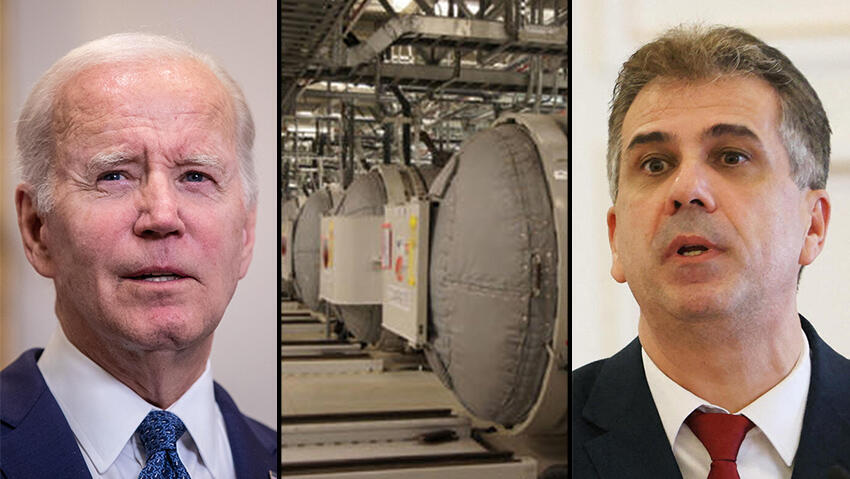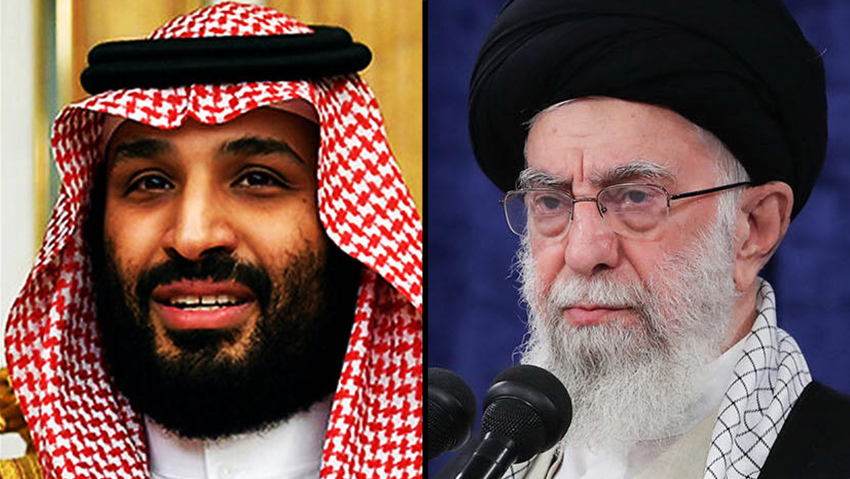Amid talks regarding a potential normalization deal with Saudi Arabia, Foreign Minister Eli Cohen urged the United States, in a Wall Street Journal article published on Wedensday, to consider the "South Korea model" for the Middle East, as a strategy to curb Iran's nuclear objectives in the area.
Read more:
Cohen posits that, even with North Korea's nuclear menace, Seoul hasn't pursued its own nuclear arsenal, thanks to the protective umbrella the United States provides. In his view, Washington's strategy in the region effectively curtails Pyongyang's potential hostility toward South Korea.
2 View gallery


Eli Cohen wants Joe Biden to take Saudi Arabia under his wing
(Photos: EPA, Getty Images, Reuters/Louiza Vradi)
In May, the International Atomic Energy Agency (IAEA) revealed that Iran has persisted in breaching its nuclear commitments, amassing a considerably larger reserve of enriched uranium. The report disclosed that, by mid-May, Iran held an enriched uranium volume 23 times the 2015 nuclear pact's limit. Furthermore, Reuters highlighted that, based on the IAEA's data, the current uranium level could potentially fuel two nuclear weapons.
"The threat of a nuclear Iran has evolved beyond mere speculation," the minister wrote. He suggested that "should Iran equip itself with nuclear arms, it could trigger a regional arms surge, prompting nations like Saudi Arabia, Egypt and Turkey to fortify their positions, unsettling regional stability."
2 View gallery


Iran's supreme leader Ayatollah Ali Khamenei and Saudi Prince Mohammad Bin Salman
(Photo: AP, EPA)
Cohen underscored the potential of American defense commitments in stabilizing the Middle East, possibly nullifying nuclear ambitions of nations like Saudi Arabia. He advocated for "a collective front, coupled with global endeavors to restrict Iran's nuclear progress, as a strategy to cultivate Middle East peace and normalization."
As a condition for its normalization deal with Israel, Saudi Arabia seeks to create a uranium enrichment center, potentially positioning it within the circle of nuclear-capable nations. While Saudi Arabia, like its neighbors, insists its nuclear aims are peaceful, voices in Israel have expressed reservations about this development.

